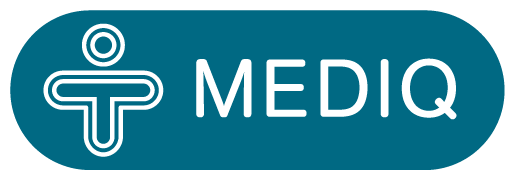Corporate Governance

Stakeholders dialogue
Mediq is an international company specialising in healthcare. The various markets in which we operate are not regular markets. Governments set requirements on affordability, accessibility and quality of care, which makes healthcare markets highly complex and challenging. The success of our company depends on the extent to which we are able to meet the needs of patients and healthcare professionals. Our business strategy also needs to incorporate the views and interests of other stakeholders such as governments, political officials, regulatory bodies, healthcare insurance companies, producers of medical products and patient and consumer organisations. Mediq actively monitors the discussion between these parties. If possible, we contribute to the discussion directly, or through industry associations.
We maintain contact with patients and healthcare professionals
We proactively assess client satisfaction by conducting customer satisfaction surveys. In addition, we contact patients, patient associations and medical professionals to discuss therapy-related subjects. Our employees in the various countries covered by our organisation are in contact with the healthcare insurers in those countries. Moreover, our central purchasing department and the local category managers maintain up-to-date communication with producers of healthcare products.

Responsible disclosure
The safety and security of our products and services are vitally important and we greatly value the privacy of our customer. Safeguarding the security of our IT systems is a top priority. Have you found a vulnerability in our IT systems? If so, let us know so that we can take steps to address this as quickly as possible.
Risk management and control system
When conducting its regular business activities, Mediq is exposed to various financial and operational risks which are typical for doing business in the healthcare sector. We identify business risks relating to our strategic, operational and financial objectives, assess the likelihood of their occurrence and potential impact and where possible take steps to manage or mitigate these risks. This approach is embedded in our organisation.
Internal guidelines and external standards
Uniform operational and financial guidelines and procedures are in place that apply to all group Companies. These include guidelines for the operational design of business processes and financial reporting, investments, financing and - more generally - long-term liabilities. We have policies related to information security and personal data protection, covering both the business and the IT environment. Our procedures require reporting of incidents that could harm our patients’ health, cause financial damage or threaten our reputation. We also have procedures that require reporting of breaches related to personal information of individuals. We are bound to stringent statutory and regulatory requirements for quality and safety on the storage and delivery of our products. Our group companies are certified according to ISO standards or similar quality certifications.
Assessment
The group companies are responsible for the design and operating effectiveness of the risk management and control systems in their companies, within central group guidelines. Group companies perform regular assessments of the main business risks relating to their activities and objectives. Main business risks and related mitigating actions are regularly discussed with the Executive Committee. Group companies report on an annual basis on the quality of their risk management and control systems by means of a letter of representation. Our Internal Audit department performs risk-based audits at our group companies, which contribute to assessing and, where necessary, further improving the design and operating effectiveness of our risk management and control systems.
Risk tolerance
We stimulate the pursuit of new opportunities and accept associated risks provided that they help us attain our strategic and operational objectives. The requirement that we impose is that associated risks are identified and managed. Our approach to risk is influenced by various internal and external factors, such as our financial results and operating cash flows, our financing options, economic developments and statutory and regulatory requirements. We apply stringent financial criteria to acquisitions and investments. We are prepared to accept the risk associated with acquisition processes, as long as these satisfy our targets in terms of strategic direction, financial returns, management and other criteria.
